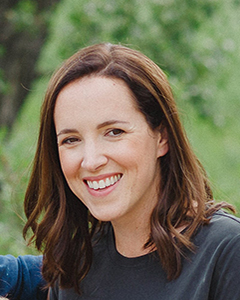
Finding the intersection of community development and health, Claire O’Gorman, MPH’12, utilized her education in public health and nursing to creating Alberta’s first supervised drug-consumption site, Safeworks.
Describe what you do, in a few sentences.
I am a Registered Nurse and Program Manager at Safeworks in Calgary, where alongside an incredible team, I lead the operations of two harm reduction-based outreach teams and the supervised consumption service. Our program has expanded exponentially in the last three years in response to the opioid overdose crisis.
What do you consider your greatest achievement to date?
Although a community coalition of stakeholders had been engaged in working towards supervised consumption services in Calgary for some time, the actual implementation of services happened within a very short period; the Safeworks team was able to mobilize, recruit and train staff, and deliver supervised consumption services rapidly in response to the need in our community.
Please list a few of your current accolades/awards received, volunteer positions, and/or past job positions.
Before joining Safeworks, I worked at the Calgary STI clinic when I first moved back to Calgary in 2014. Before that, I was Program Director at YouthCO in Vancouver, where I had the opportunity to learn about harm reduction, communicable diseases, and the impact that stigma can have on communities.
I have been recognized for my work with Safeworks through the College and Association of Registered Nurses of Alberta Nursing Excellence Award (2018) and a Calgary Avenue Magazine Top 40 Under 40 Award (2018).
Name the last book you couldn’t put down.
To be honest, I have a toddler at home, so I don’t read many books these days.
What is your favourite UBC memory?
I met an incredible group of people through the School of Population and Public Health, and we became really close friends. We had a lot of fun together and still do. I’m grateful for the support and teachings they provided me, in addition to the learnings and support from UBC staff and faculty.
Biggest risk you’ve taken to date?
Deciding to move back to Calgary, my hometown, took some courage; I didn’t have a job lined up, and was worried about whether I would find work in harm reduction here in Alberta. I was lucky to quickly land in a position that I love.
What is your next challenge/goal?
The greatest challenge wasn’t to implement supervised consumption services in Calgary , but to continue advocating for these services and the ongoing operations, monitoring, and adjustments.
What led you to choose your area of study for your degree?
I did a Masters in Public Health at the School of Population and Public Health. I have always been interested in the social determinants of health, health equity, and health justice, and an MPH at SPPH gave me the knowledge and skills to enact change at a program and policy level.
Please name a few of your favourite hobbies and activities.
I enjoy spending time in nature, and keeping up with the national harm reduction community on Twitter.
Name something that is on your bucket list. Have you completed it?
I can’t say I’ve ever made an official bucket list. I like to take opportunities as they present themselves, rather than trying to work through a check-list.
What are the best aspects of your career?
I was drawn to population and public health because of my interest in social justice and health equity. I am particularly interested in the intersection of community development and health. The best aspect of my career is getting to see the positive impacts that programs and policies can have when they are designed alongside those they serve, and with health equity in mind. I really enjoy spending time in the supervised consumption site spending time with the team and our clients, and seeing the benefits of the relationships we have built in our community.
What are the most challenging aspects of your career?
At times, it’s difficult to feel like I’m constantly justifying or rationalizing the work that I do. Harm reduction is pragmatic and a justice-based approach to caring for people who use substances. To me, it is logical and easy to understand. But for a lot of people, it requires a paradigm shift in order for them to see why I might do, let alone enjoy, this work.
Comments are closed, but trackbacks and pingbacks are open.